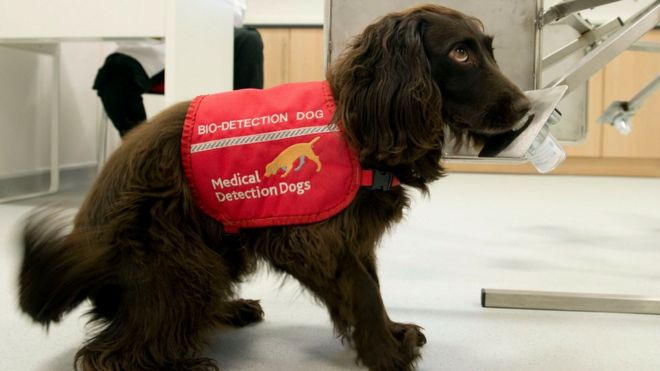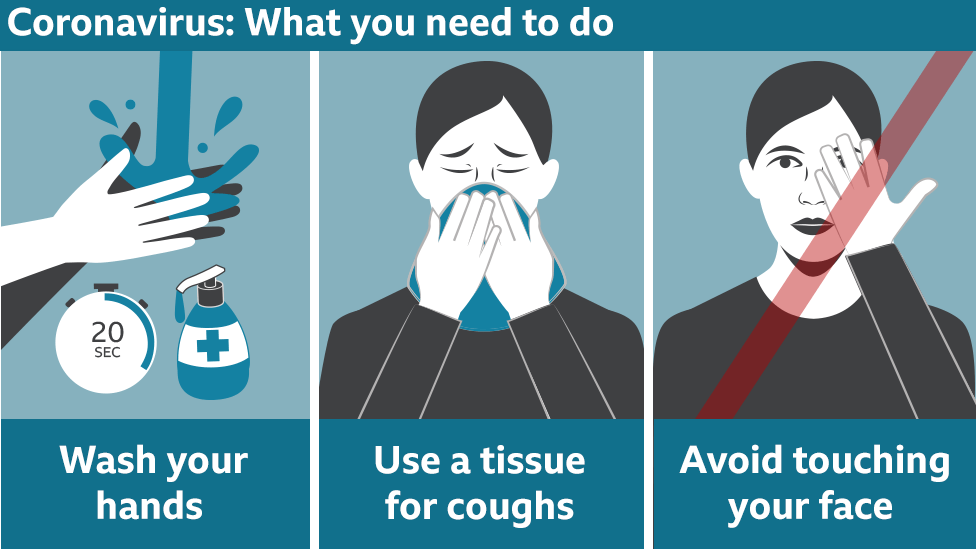Coronavirus: Dogs to be trained to detect virus
 MEDICAL DETECTION DOGS
MEDICAL DETECTION DOGS
Specialist sniffer dogs are to be tested to see if they can detect coronavirus.
The charity Medical Detection Dogs has already trained dogs to spot the scent of malaria, cancer and Parkinson's.
It plans trials on the current pandemic virus with Durham University and the London School of Hygiene and Tropical Medicine (LSHTM).
Charity boss Dr Claire Guest said it had to find out how to "safely catch the odour of the virus from patients".
"In principle, we're sure that dogs could detect Covid-19," she said.
'Fast and effective'
If this is proven, the dogs could be used to screen anyone, including those with no symptoms.
"This would be fast, effective and non-invasive and make sure the limited NHS testing resources are only used where they are really needed," Dr Guest said.
LSHTM head of disease control Prof James Logan said research showed dogs could detect the odour of malaria infection with a level of accuracy "above the World Health Organisation standards for a diagnostic".

- A SIMPLE GUIDE: What are the symptoms?
- AVOIDING CONTACT: Should I self-isolate?
- DO FACE MASKS WORK? Comparing different types
- WILL I GET PAID IF I SELF-ISOLATE? The rules on sick pay
- WHAT IS A PANDEMIC? The WHO's definition

Medical Detection Dogs said each disease had its own unique odour.
Dogs could be ready in six weeks to help provide a "rapid, non-invasive diagnosis", it said.
They could potentially also be trained to tell if someone had a fever.
Prof Steve Lindsay, from Durham University's Department of Biosciences, said detection dogs could be used at airports to rapidly identify people carrying the virus.
"This would help prevent the re-emergence of the disease after we have brought the present epidemic under control," he said.





